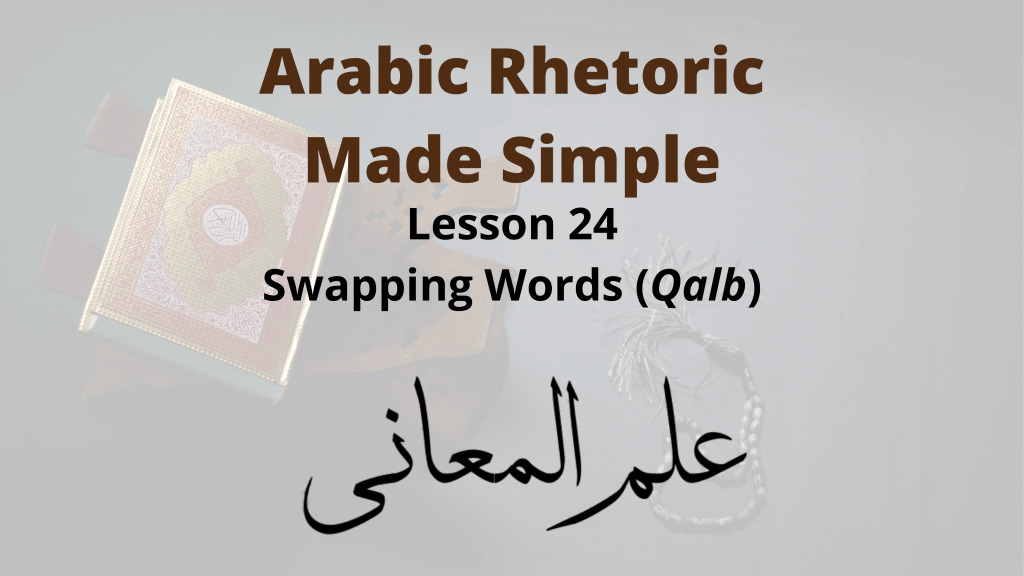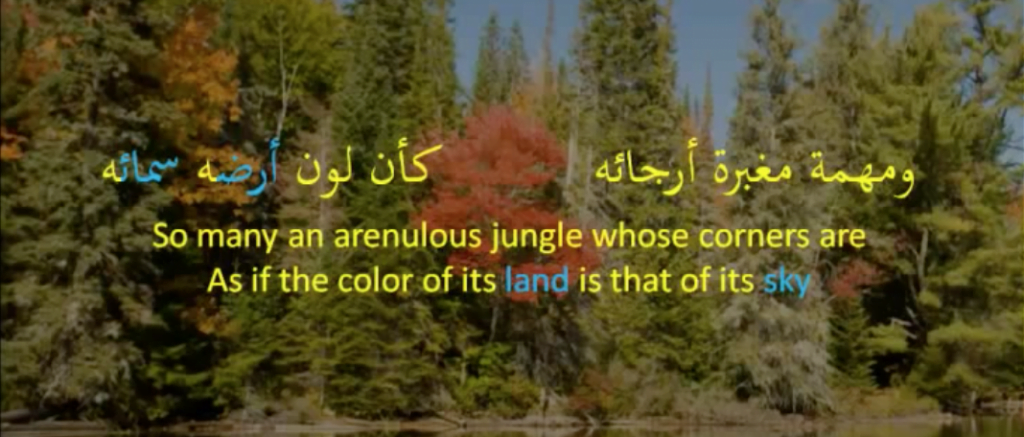In this lesson on Balagha, we are going to learn about swapping words in a sentence. A phenomenon known as قلب.

قلب is where you swap the position of two words in a sentence, thereby changing the meaning of the sentence. But this new meaning should have some deep purpose to it. You cannot just swap any two words and call it قلب.
Example
Let’s take an example:

But there is a question here. What pounds against what?
Does the ground pound against your feet or do your feet pound against the ground? Obviously, it is your feet that pound against the ground. So, we expect this sentence to read: His feet were pounding against the ground as he ran. But we have swapped the phrases “his feet” and “the ground”, and we have ended up with: The ground was pounding against his feet.
Purpose
Why would we do this?
The reasons are many. And they are specific to each situation. They change from example to example, but you can bet it usually has something to do with exaggeration and hyperbole.
In the example above, maybe we are talking about a boy who is on a journey through the jungle, and maybe we want to show that everything in the environment is against him. The animals are trying to devour him, the plants are getting in his way. It seems that even the earth pounds against his feet as he runs. So instead of saying that his feet are doing the pounding, we say that the ground is doing the pounding to exaggerate the fact that everything is set against him.
Arabic Example
Let’s take a look at a more sophisticated example through an Arabic poem. The poet says:

The poet is talking about how there are so many sandy jungles, referring of course to deserts. He is fascinated by the sheer quantity of sand. The poet expresses this quantity of sand by comparing the sandy color of the desert and the sandy color of the sky.
The idea here is that there is so much sand on the desert that piles have lifted into the air and have started wafting around with the wind, to the point that even the sky has turned the colour of the desert, and has become filled with sand. That is how sandy this desert is.
But the poet doesn’t say: The color of the sky has turned the color of the desert.
He swaps the two and he says: The color of the desert has turned the color of the sky.
It is the other way round. That is weird.
When dust rises what turns the color of what? Does the desert turn the color of the sky or does the sky turn the color of the desert?
Obviously in this type of exaggeration the sky turns the color of the desert because when it comes to being sandy and sand-coloured, the desert is the asl and the sky is what is being compared. But by switching the comparison around like this, the poet is making the sandiness of the sky the asl, thus exaggerating beyond all exaggeration. It is like he is saying, forget about the sandiness of the desert, even the sky is so sandy that it has become the thing to compare against. In English, we translate this type of exaggeration by saying things like: “sandy skies is the desert’s middle name”.
- Proceed to next lesson: Omitting and Mentioning the Predicate
- Return to index page: Intro to Ilm Ul-Ma’ani
- Start free lessons: Sign Up for Free Mini-class